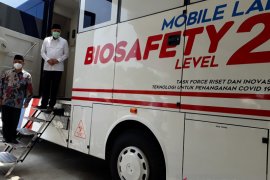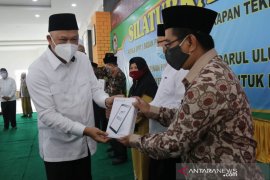Jakarta, (Antara) - Indonesia's Agency for the Assessment and Application of Technology (BPPT) claimed here on Tuesday that the Zika virus infection, which has spread rapidly in Latin America, was yet to be identified clearly in the archipelago.
According to the agency's deputy head of the agroindustrial technology and biotechnology division, Eng Eniya Listiana Dewi, the most common symptoms of the Zika virus infection are similar to those of malaria and the aedes aegypti-caused dengue fever.
"We still affirm that the symptoms of the Zika virus infection are similar to those of malaria and the aedes aegypti-caused dengue fever. Therefore, the identification of this virus remains unclear. For Indonesia, malaria remains harmful," she informed journalists on the sidelines of a meeting of the Joint Coordinating Committee (JCC) for the SATREPS Project by Utilizing Diversity of Indonesia Bio-resources (SLeCAMA) here.
In coping with the threat of the Zika virus infection, the Health Ministry has warned related parties and society members to implement the 3M guidelines, which stand for burying (mengubur), draining (menguras), and covering (menutup), as well as the campaign to eradicate mosquitos (PSN/Pemberantasan Sarang Nyamuk).
As published on the World Health Organization's (WHO's) official website, "Zika virus infection is caused by the bite of an infected Aedes mosquito, usually causing mild fever, rash, conjunctivitis, and muscle pain, while its most common symptoms are mild fever and exanthema (skin rash), usually accompanied by conjunctivitis, muscle or joint pain, and general malaise that begins two to seven days after the bite of an infected mosquito."
Isolated for the first time in 1947 in the Zika forest in Uganda, the WHO noted that since then, the virus has remained mainly in Africa, with small and sporadic outbreaks in Asia. Since October 2015, the presence of the virus was reported by certain countries and territories in the Americas.(*)









